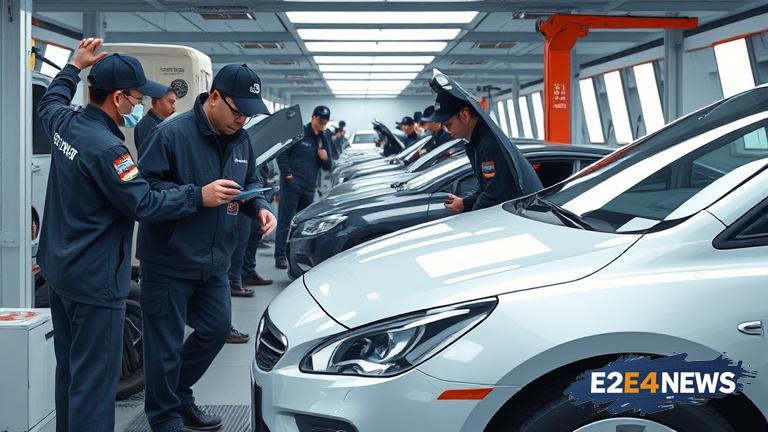The Kenya Bureau of Standards (KEBS) has been at the center of controversy following its deal with a Japanese firm to conduct car inspections in the country. The agreement, which was signed in 2020, has raised eyebrows among stakeholders, with some questioning the transparency and fairness of the deal. According to reports, the Japanese firm, which is responsible for conducting inspections on used vehicles imported into Kenya, has been accused of favoring certain dealerships over others. This has led to allegations of corruption and unfair business practices, with some dealerships claiming that they are being unfairly targeted by the inspection process. The KEBS deal with the Japanese firm has also been criticized for lacking transparency, with some stakeholders claiming that the terms of the agreement were not made public. The lack of transparency has raised concerns about the potential for corruption and abuse of power, with some questioning whether the deal was properly vetted before it was signed. The car inspection process is a critical component of Kenya’s vehicle importation regulations, and any irregularities in the process could have significant implications for the country’s automotive industry. The KEBS deal with the Japanese firm has also been criticized for potentially undermining the competitiveness of the local automotive industry, with some arguing that the agreement favors foreign dealerships over local ones. The controversy surrounding the KEBS deal has sparked calls for greater transparency and accountability in the car inspection process, with some stakeholders advocating for a more open and competitive tendering process. The Kenyan government has been urged to intervene in the matter, with some calling for a review of the agreement and others demanding that the deal be scrapped altogether. The controversy has also highlighted the need for greater oversight and regulation of the car inspection process, with some arguing that the current system is vulnerable to abuse and corruption. In response to the controversy, KEBS has defended the deal, arguing that it was signed in good faith and that the Japanese firm was selected through a competitive tendering process. However, the agency has also acknowledged that there may have been some irregularities in the inspection process and has promised to investigate the matter further. The investigation is ongoing, and it remains to be seen whether the KEBS deal with the Japanese firm will be allowed to stand. The controversy has significant implications for Kenya’s automotive industry, and it will be important to monitor the situation closely in the coming weeks and months. The Kenyan government has a critical role to play in ensuring that the car inspection process is transparent, fair, and competitive, and that the rights of all stakeholders are protected. The controversy surrounding the KEBS deal is a reminder of the importance of transparency and accountability in government contracting, and the need for robust oversight and regulation to prevent corruption and abuse of power. The car inspection process is a critical component of Kenya’s vehicle importation regulations, and any irregularities in the process could have significant implications for the country’s automotive industry. The KEBS deal with the Japanese firm has also been criticized for potentially undermining the competitiveness of the local automotive industry, with some arguing that the agreement favors foreign dealerships over local ones. The controversy has sparked calls for greater transparency and accountability in the car inspection process, with some stakeholders advocating for a more open and competitive tendering process. The Kenyan government has been urged to intervene in the matter, with some calling for a review of the agreement and others demanding that the deal be scrapped altogether. The controversy has also highlighted the need for greater oversight and regulation of the car inspection process, with some arguing that the current system is vulnerable to abuse and corruption. In conclusion, the KEBS deal with the Japanese firm for car inspections has raised significant concerns among stakeholders, and it will be important to monitor the situation closely in the coming weeks and months. The controversy has significant implications for Kenya’s automotive industry, and it will be important to ensure that the car inspection process is transparent, fair, and competitive, and that the rights of all stakeholders are protected.
